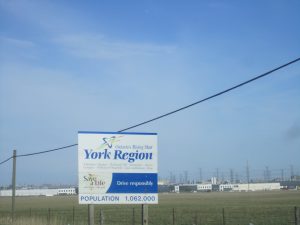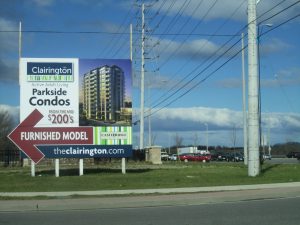By Roger Keil
I have argued in an op-ed with Matt Kellway in the Toronto Star that the recent budget by the Conservative government of Canada has done little for the needs of urban regions in Canada. Specifically, we noted for the Toronto case: "There is a public poverty that has settled across this urban region .... It is evident in the shabbiness of our public space and the dilapidation of our infrastructure. Not for all, but for most, it is conspicuous too by the scarcity, sometimes absence, of our infrastructure — from transit to affordable housing to child care. There is a private poverty too. It is found all over but is concentrated in the expanse between our downtown and the “cities in waiting” in the exurban belt beyond Steeles. In these inner suburbs, a new in-between city has emerged where social and economic problems abound."
This is a clear recognition of the fact that the way the "urban question" is now being posed in Canada (and perhaps elsewhere) deserves a conceptual opening to the "regional cities" (named so by Rob Fiedler in an OpenFile blog) in which we actually live.
 It is indeed important that, while it has been an often confirmed staple of urban political studies that suburbs tend to be more conservative than inner cities, there are some new developments that need our attention. The suburbs (inner but also outer) are beginning to show the stress of maturation and societal change. They are not havens of social harmony and wealth as they are often perceived and portrayed. They are changing rapidly.
It is indeed important that, while it has been an often confirmed staple of urban political studies that suburbs tend to be more conservative than inner cities, there are some new developments that need our attention. The suburbs (inner but also outer) are beginning to show the stress of maturation and societal change. They are not havens of social harmony and wealth as they are often perceived and portrayed. They are changing rapidly.
As they change, the suburbs are also becoming more politically volatile. The bright orange colours of the NDP have recently started to creep into former liberal and conservative exurban electoral ridings in both provincial and federal elections. These electoral successes of left-of-centre candidates are the inverse counterpart of the desire to change that has gripped Ford Nation, which, not too long ago, appeared a solid conservative bastion of anti-urban sentiment. In recent shifts on Toronto City Council, it was the political will of some suburban councilors to join the fight against regression in transit, housing, labour, environmental and public service that has been the surprising story. And it is from these suburban wards that some of the most innovative ideas of how to live in our "regional city" originate.
 All of this is yet undefined and very shaky territory. It is not yet at redrawing of political and electoral landscapes. But it is clear that while the conservative budget tends to isolate and bypass the urban questions this urban nation needs to ask, it also sidelines those voters, tower residents, workers, tenants, immigrants, youth and other constituencies that had been taken for granted by the anti-urban political forces or had been ignored by them.
All of this is yet undefined and very shaky territory. It is not yet at redrawing of political and electoral landscapes. But it is clear that while the conservative budget tends to isolate and bypass the urban questions this urban nation needs to ask, it also sidelines those voters, tower residents, workers, tenants, immigrants, youth and other constituencies that had been taken for granted by the anti-urban political forces or had been ignored by them.
The suburban part of our "regional cities" are now beginning to show their -- potentially new -- political colours. They have begun to claim the right to the city!

